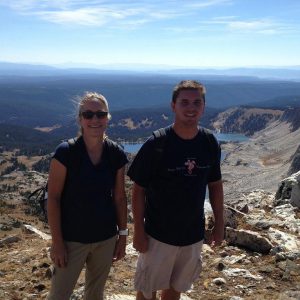On Languages, Literatures and Cultures
The Department of Languages, Literatures and Cultures (DLLC) annual end-of-year convocation is an event that we faculty cherish. It is at this event that we, together with their family and friends, celebrate the achievements of our graduates. It is also an occasion upon which to reflect on the meaning of the programs that we offer and the degree that our graduates have earned. In May 2016, DLLC was proud to welcome Dr. Babatunde Ogunnaike, William L. Friend Professor of Chemical and Biomolecular Engineering and Dean of the College of Engineering, as keynote speaker. The audience hung on his every word.
In Dean Ogunnaike’s words, reproduced in part here by his generous permission: “Our technological achievements as a human race have been truly breathtaking in their audacity, awe inspiring in their sophistication, and are eminently worthy of celebration. And many of the grand challenges we face today demand even more daring feats of engineering. However, in the midst of what could well be the golden age of human technological achievement, what has happened to the bonds of our humanity? Have they not been strained nearly to the breaking point? What technological invention is there to restore these bonds and to make us whole again? Alas, there is no app for that! As an engineer concerned with problem solving and invention, I have come to the conclusion that language, as a conceptual entity, may very well be the most important of mankind’s inventions. Think about it: nothing we have achieved as humans is possible without communication, and language lies at the core of what makes us human. There is nothing more fundamental than language.”
Dean Ogunnaike went on to observe that “language is, of course, intimately linked with culture…. Students working on our Engineers Without Borders projects learn this when they discover that construction cannot begin on water systems and bridges in developing countries until cultural wells have been dug and cultural bridges built—in other words, until our students understand the culture of the community in which they are working and until they build relationships in these communities…. If you remember nothing else that I say today, remember this (a Yoruba proverb): A tree will not grow taller than its root system will support…. At the root of the tree of civilization is the richness of our cultures, our literatures and, our languages. This is what nurtures the mind, informs our ethics, and ultimately determines our collective humanity.”
The truth of these statements is embedded in the word “culture” itself, which is derived from the Latin “colo,” meaning “to live, inhabit, dwell, cultivate, till.” Having “culture,” then, is synonymous with what it means to be human, to inhabit the world and establish relationships both with each other and with the rest of Nature. Whether it is ancient or modern languages that we master, all of these offer critical insights into Earth’s various peoples and places.
This entry was posted in Message from the Chair, Polyglot and tagged Fall 2016 Polyglot.

